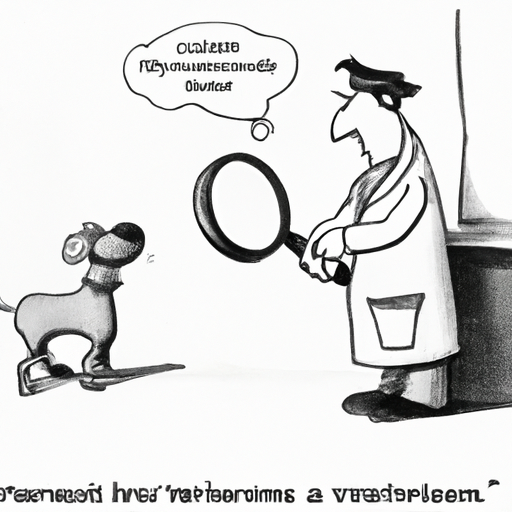Understanding Hookworms
Hookworms are parasites that your dog can contract in a variety of ways. These parasites live in the small intestines of the host and can cause a variety of health issues if not treated promptly and properly.
Hookworm larvae can be ingested by your pet from contaminated soil or feces, or can penetrate the skin (usually through the feet). Hookworms can also be passed from mother to pup during nursing. Once inside your pet’s body, the larvae mature into adults within a matter of weeks.
Hookworm Lifecycle
To understand how your dog may contract hookworms, it’s important to understand the lifecycle of these parasites. Here’s a simplified version of the lifecycle:
- Adult hookworms lay eggs in the intestines of the host (your dog).
- These eggs are expelled in the feces.
- Once outside, eggs hatch into larvae.
- These larvae can infect a new host in two ways:
- Ingestion of larvae from contaminated soil or feces.
- Penetration of the skin by the larvae.
Risk Factors for Hookworm Infections
Certain conditions can increase the risk of your dog contracting hookworms:
- Dogs that frequently go outdoors are at a higher risk as they are exposed to contaminated soil.
- Puppies, due to their immature immune systems, are at a higher risk.
- Dogs living in crowded or unsanitary conditions are more susceptible.
Symptoms and Diagnosis of Hookworms
If your dog has contracted hookworms, they may show symptoms like:
- Diarrhea, often with blood
- Weight loss
- Weakness
- Pale gums (indicating anemia)
A stool sample analyzed by your vet can confirm the presence of hookworms.
Treatment and Prevention
Treatment for hookworms usually involves deworming medication that kills the adult hookworms. Your vet may also recommend follow-up fecal exams and treatments to ensure all hookworms and their larvae have been eliminated.
Prevention is key in protecting your dog from hookworm infections. Here are a few steps you can take:
- Regularly clean up your dog’s feces.
- Keep your dog’s living area clean and sanitary.
- Regular vet check-ups and fecal exams.
- Use of preventive medications as recommended by your vet.
| Prevention Method | Description |
|---|---|
| Clean up feces | Regularly clean up your dog’s feces to prevent contamination. |
| Sanitary living conditions | Keep your dog’s living area clean and free of feces. |
| Regular vet check-ups | Regular vet check-ups can help detect and treat a hookworm infection early. |
| Preventive medications | Use of preventive medications can help protect your dog from hookworms. |
Frequently Asked Questions
Q: Can humans get hookworms from dogs?
A: Yes, but it is rare. Humans can get hookworms if they come into contact with contaminated soil or feces.
Q: How long does it take for hookworms to mature in dogs?
A: It takes about 2 to 3 weeks for hookworm larvae to mature into adults inside a dog’s body.
Q: Are certain breeds more susceptible to hookworms?
A: No, all breeds are equally susceptible to hookworm infections.
Q: Can hookworms be fatal in dogs?
A: In severe cases, especially in puppies, hookworm infections can be fatal if not treated promptly.



